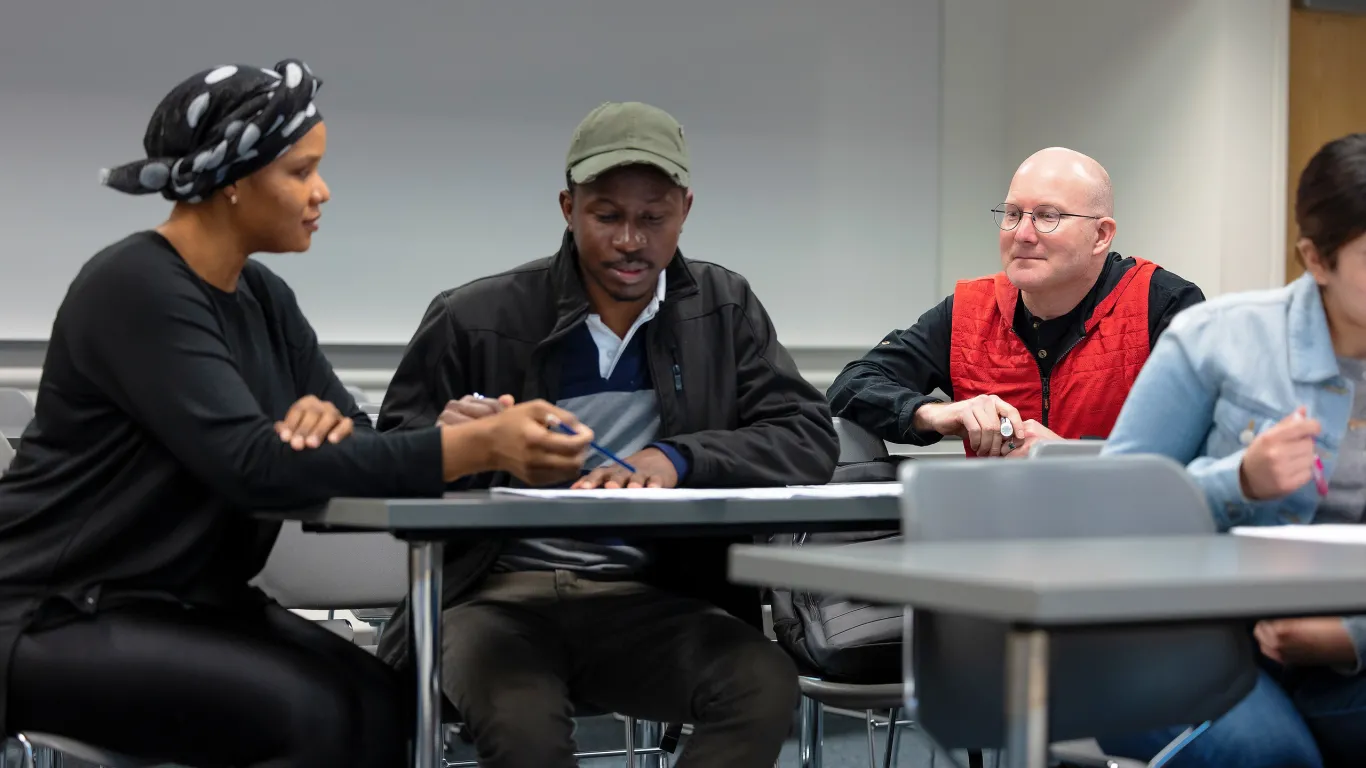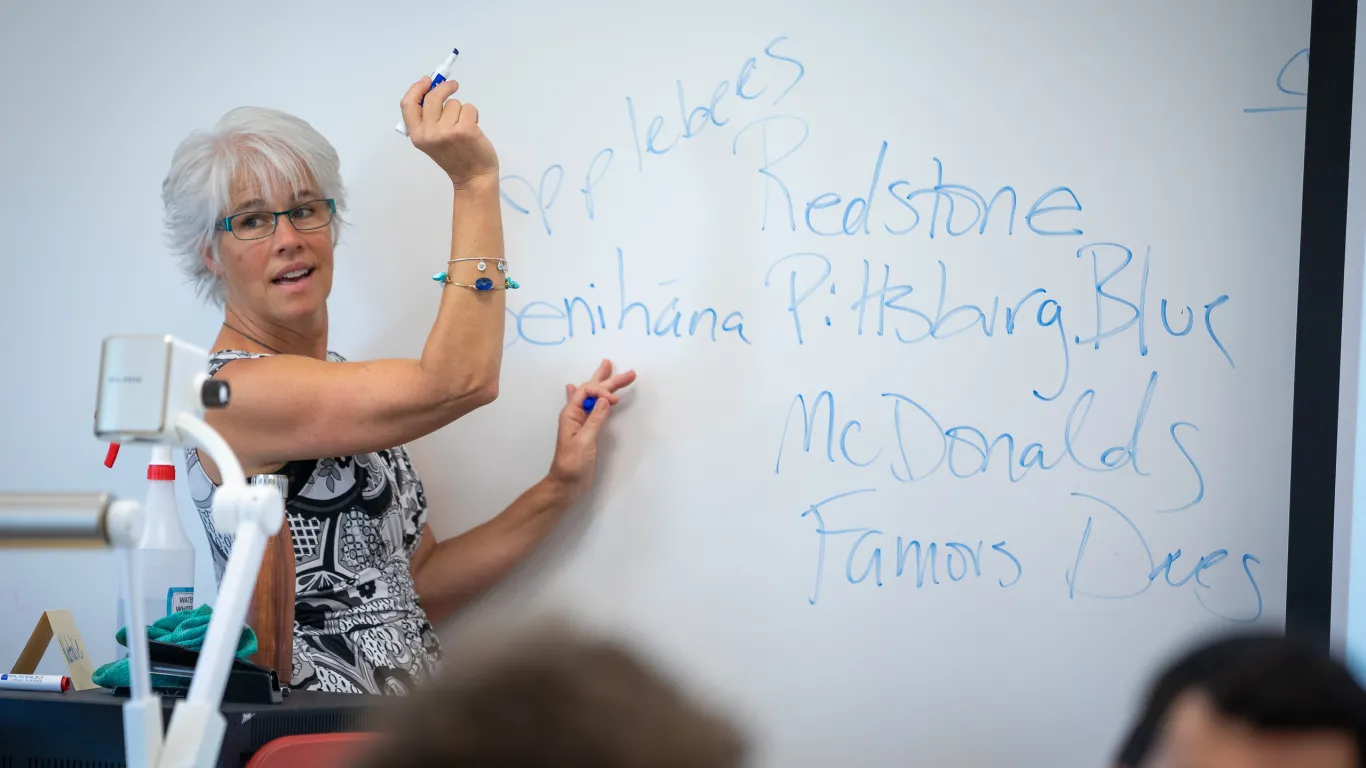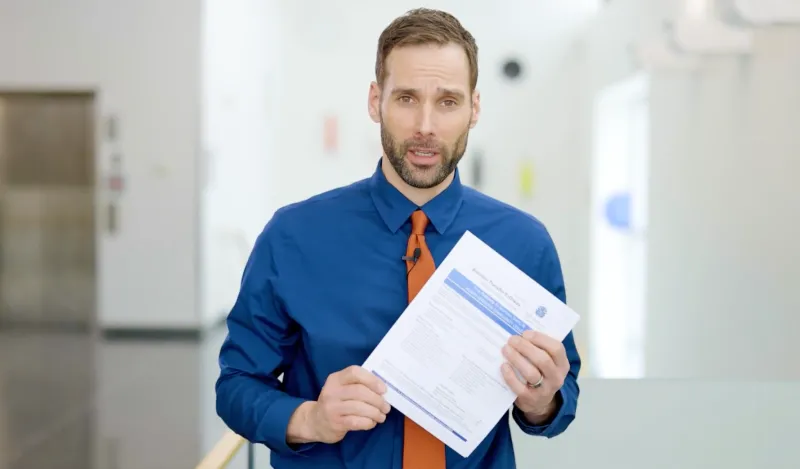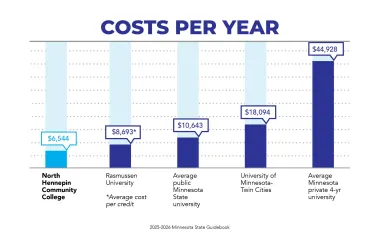Apply for Free
Use promo code SP26 to apply for free.
Transfer Options
NHCC's Business AS Degree transfers seamlessly to many bachelor's degree programs at Minnesota State universities, and there are many transfer options for private colleges. If you plan on transferring to a bachelor's program, be sure to meet with your academic advisor in your first semester at NHCC.
Minnesota State Transfer
In partnership with Metropolitan State University, students can earn a bachelor's degree in Business on NHCC's campus.
The Business Transfer Pathway AS will transfer to any of the following Minnesota State universities:
- Bemidji State University
- Metropolitan State University
- Minnesota State University Mankato
- Minnesota State University Moorhead
- Southwest Minnesota State University
- St. Cloud State University
- Winona State University
Private College Transfer
Be sure to meet with your academic advisor if you are considering transferring.
The Business Transfer Pathway AS will transfer to any of the following Minnesota private colleges:
Transfer Options Outside Minnesota State
If you plan to transfer to a business program outside the Minnesota State system, it's important to work with your academic advisor in your first semester at NHCC.
If you're planning to transfer to a Business bachelor's program at the University of Minnesota, you should start in the Liberal Arts AA program at NHCC, and you'll need to work with your academic advisor in your first semester at NHCC.
Career Outlook
Graduates of the Business Transfer Pathway program can enter the workforce or choose to continue their education in a business-related bachelor's program. A business degree is one of the broadest degrees you can get. The skills gained through a business education are needed in every industry, and in a variety of careers. Learn more on CareerWise.
Potential Career Fields
- Customer service
- Entrepreneurship
- Finance
- Marketing
- Management
- Public administration
- Sales
Where NHCC Business Grads Work
- Amazon
- Best Buy
- Connect Wireless
- Data Recognition Corporation
- Nike
- North Memorial
- Northern Power Products, Inc.
- Social Security Administration
- Target Corp.
- UCare
Business Classes at NHCC
Students in the Business Transfer Pathway benefit from small class sizes, and apply what they learn in collaborative, real-world projects, and individual work.





Paying for College
NHCC's tuition is among the most affordable in Minnesota.
Financial Aid
- Scholarships are money you don't have to repay
- Grants are money you don't have to repay
Free College Tuition
The North Star Promise scholarship program provides free college tuition to eligible students. Find out if you might be eligible.
Program Roadmaps
Program roadmaps provide students with a guide to understand the recommended course sequence to complete their degree.
Business Transfer Pathway Curriculum
Get Started
If you're ready to get started, apply to NHCC. If you'd like to learn more, you can visit campus or request information.


